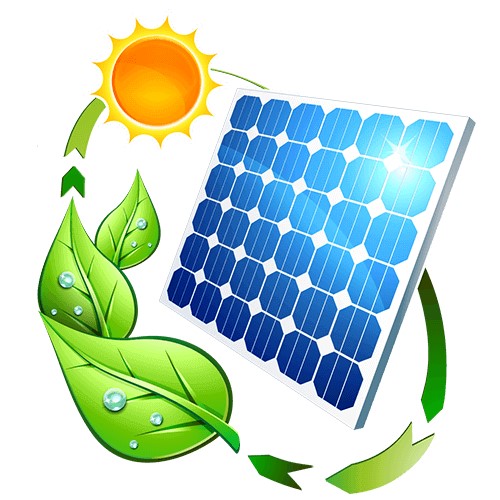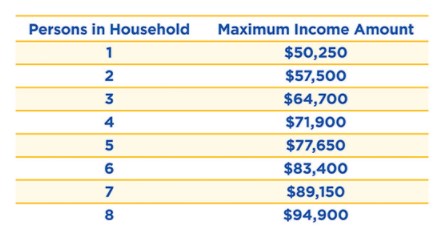
Impact Investing
January 31, 2022
The term “Impact investing” was created by the Rockefeller Foundation in 2008 to define the way people and corporations were beginning to focus their investment choices to pressure areas of public policy, the goal being to create social change. In 2020, impact investments received close to a 50% increase in funds moving from traditional allocations of mutual funds and exchange traded funds (ETF)s towards funds that had a specific focus of inclusion or divestment from a particular investment category.
Impact investing is moving investment money to companies and industries that you believe in, using your personal capital for social good and to make money in what you value.
Impact investing can be done in many different ways and have varying implications to an overall investment portfolio. Things that need to be addressed in any individual investment plan are:
1) Will the returns of the investment get what they need?
This is often the first piece of push back when an advisor hears that a client wants to look at impact investing. For the most part, it is unfounded. In the twenty years that impact investing has been getting a strong hold in investment culture, returns are not significantly different when comparing a broad allocation within an index to a smaller selection of an index screening out for a value set.
2) Are the underlying expenses of the fund worth the price?
When your objective is impact, you will want to continue reviewing if the cost of ownership is meeting your needs. Investors have been encouraged to be leery of high cost funds. There is however, something to be said for a company that screens for your particular interests and will continue to rank companies as leaders and offenders within a particular value space. Paying a price for a service you are not independently able to monitor regularly for efficient use of a strategy can be worth it, especially if the price allows you to invest in a way that is in alignment with your values.
Tax efficiency should also be considered in a personal investment strategy as well. Mutual funds by their design are required to pay out their gains to the investors annually, which can create taxable income to the investor when in a taxable account. ETFs do not have this requirement and are taxed on the sale of the investment.
3) Is the fund doing what it advertises?
“Greenwashing” is a term used to describe companies using value investing advertising to promote a product that may not live up to the hype. Well respected companies are guilty as are companies just trying to make a profit.
Are you still diversified?
Diversification within investing is when your investments are diverse across small, medium, and small companies, in the United States, developed world and developing countries, and holding onto debt obligations through different length bonds.
How do you insure your investments are what they say they are?
Use a tool such as a non-profit like As You Sow. As You Sow is a research company that provides information on issues such as climate change, gender inclusion, racial justice, and corporate ethics in a way that promotes corporate accountability and a third party whistle blower. Read their resources to educate yourself on the issues you care about or use their tools to find a fund that you may be able to invest in on your own replacing elements of your investment portfolio with something that is more in line with your personal philosophy. Go to https://www.asyousow.org/invest-your-values to use the tool that is set up to save you time and energy of watching the news for companies doing good or destructive things and build your investment portfolio with your heart at the heart.
We are not providing investment advice but recommending that you investigate ways to live your values and to research ways you can do that through your investments. Investing is a very personal process and one that takes your whole financial life and goals into consideration. What will be the right fit for some will not be the right fit for all. Speak to an investment professional who supports impact investing for more information on how you might be able to use your investments to live more fully into your personal mission.
NEW SOLAR FARM!
November 24, 2021
UUCA is now a partner of Neighborhood Sun, which is handling subscriptions to this solar farm.
If you have friends or family living in Montgomery County who meet the moderate or low income criteria, you might alert them to the opportunity. (Young people renting? Retirees? People with larger families? ) I was surprised by how generous the upper limits on income are. UUCA’s web page provides all the details and how to sign up. Every sign-up that comes through the UUCA webpage generates an award of $50 from Neighborhood Sun to thank UUCA.
Happy Thanksgiving
Judy Wagner, member Solar sub-group of Green Initiative Team.
HOW TO USE SOLAR ENERGY
AND SAVE MONEY TOO!
September 14, 2021
UUCA’s Green Initiative Team wants to help congregants fight climate change. One way to do this is to use electricity from solar farms as your source of electric power. This is great for people who wish to support solar energy without installing solar panels on their roofs. And, it works for renters, too! The state of Maryland has a program to support the development of solar farms in Maryland. It is the Maryland Community Solar Pilot Program, under the Maryland Public Service Commission. A community solar program is a purchasing program in which the electricity produced at solar farms flows to multiple customers. Community Solar customers pay for a percentage of the electricity produced by a specific solar farm, based on roughly 90% of that customer’s average utility bill. The customer receives a discount on the cost of the energy produced by the solar farm as well as a credit on their regular utility bill for the amount of energy produced. You would receive two bills, one from the community solar program for your percentage of the solar energy produced by your solar farm, and one from your utility company for any additional power you needed above that produced by your solar farm.
There are several choices of solar farms under each utility. Most have a standard discount of five to ten percent. Some have a higher discount for low to moderate-income customers, of 15 to 25%. To qualify as a moderate-income customer, a household’s income must be under 80% of Maryland’s median household income of $80,000 per year, and 80% of that is about $64,000 per year. To qualify as a low-income customer, the household income is based on 175% of the federal poverty guidelines, summarized below:

We are impressed with Neighborhood Sun as an excellent company in the community solar industry, for the following reasons:
- Local Maryland headquarters (Silver Spring, MD)
- CEO, Gary Skulnik, has a long history as a green advocate.
- Easy access by telephone as well as on-line
- It has several “partners” in the religious community (e.g., Interfaith Power and Light)
- Registered as “B” Corporation (it is allowed to have a community service goal as well as a profit goal)
- Neighborhood Sun discounts are very competitive in the industry.
- Neighborhood Sun has an open cancellation policy – (with a delay of 90 days).
- Policies for LMI (Low or moderate-income) customers are flexible- NS is willing to help clients through the LMI eligibility criteria to optimize discount.
For these reasons, UUCA has chosen to “partner” with Neighborhood Sun, meaning that for every signup done through UUCA’s “landing page” on the Neighborhood Sun website, UUCA will receive $50 from Neighborhood Sun. UUCA will designate those dollars to go to a certain cause, which is being determined by UUCA’s administration.
To Sign up for Neighborhood Sun Solar through the UUCA “Landing Page”, use this web address: https://ns.solarforall.io/signup.cfm?agent=UUCA. (If you have questions that need to be answered by a customer service rep at Neighborhood Sun, call 240-284-6245.)
If another community solar program meets your needs better than Neighborhood Sun, then certainly do what is best for you. To review your choices and sign up under BGE, go to https://cs.solarunitedneighbors.org/states/MD/programs/bge/subscriptions?usage100. For other utilities, go to https://cs.solarunitedneighbors.org/states/MD/programs, click “find subscriptions”, then click on “community solar subscriptions”, on the next page click on “select”, then click on your utility, then click on “Find Subscriptions”, then click on “Community Solar Subscriptions”. You will find an excellent description of the details of the available projects and can sign up online.
This is a way you can fight climate change and save money at the same time!
